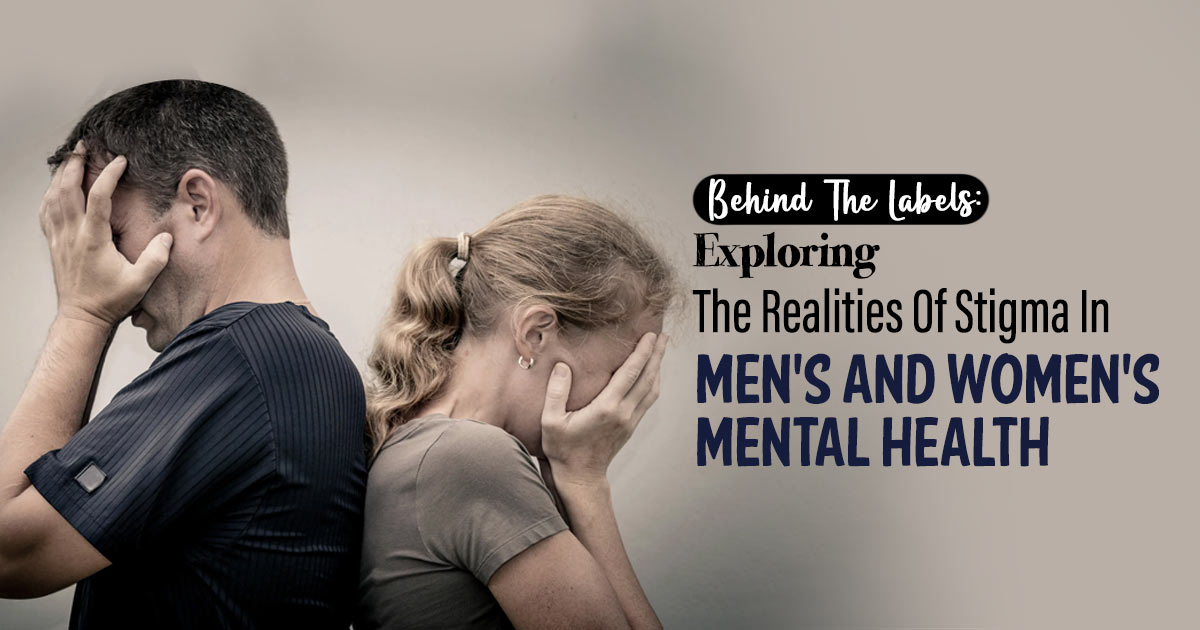Irrespective of gender, mental health remains a pervasive issue that affects people in different societies. Nonetheless, the manner in which the stigma around mental health affects men and women can be varied because of societal expectations, cultural norms, and historical stereotypes.
Men’s Mental Health Landscape
In its historical context, masculinity as a social construct has valued such traits as strength, resilience and emotional stoicism. Men are usually expected to embody such “masculine” qualities—leaving no room for vulnerability or expressions of their mental health problems. In many societies, help seeking for psychological problems has been regarded as a sign of weakness or going against traditional gender roles.
Therefore, an apprehension over appearing weak or inadequate may lead males to internalize their mental health issues, thereby potentially worsening situations like depression, anxiety, or substance use. The pressure to follow traditional family dictates make help seeking difficult, thus leading to a perception that mental illness symptoms reflect personal failure. The image of a strong and silent man further perpetuates an environment within which men cannot talk about their own minds due to fear that society would judge them.
Women’s Mental Health Landscape
Despite having a greater likelihood of serious emotional and mental health issues, women face distinct challenges and stereotypes. A long-standing connection between hormonal changes during female reproductive cycle and women’s mental states cause negative attitudes towards the latter. Consequently, such oversimplifications could result in a lack of sympathy/empathy towards women who suffer from mental illnesses.
Additionally, there are also certain societal expectations placed upon women that require them to be caregivers, professionals, and homemakers concurrently. The pressure to conform to these expectations leads to stress, anxiety, and feelings of underachievement. The experience of women suffering from mental health disorders is often diminished because society portrays it as invalid by such actions as characterizing it through harmful stereotypes and discussing it in a less open manner.
Men Or Women—whose Mental Health Is More Stigmatized?
Determining which gender faces more stigma around mental health is complex and context-dependent. Both men and women go through different challenges that are influenced by societal expectations and stereotypes, making direct comparisons difficult. In most cases, this stigma around mental health is made more complex by the intersectionality between gender and other factors such as race, economic status, and sexual orientation.
Stigma around mental health in men and women can be expressed in a range of behaviors, from discouraging help-seeking behavior to trivializing mental problems based on a few stereotypically male-female markers. For example, men’s mental health might bear more weight of stigma with reference to the pressure of adhering to traditional ideals of manhood such as valuing emotional restraint over vulnerability. This fear of being seen as weak or unmanly may prevent men from seeking assistance, which sustains silence concerning men’s conditions managing their minds.
On the other hand, women’s mental health faces stigma rooted in historical associations with hormonal fluctuations and societal expectations of balancing multiple roles. Consequently, dismissive attitudes towards them may develop while emotional experiences are often explained away by biological factors rather than being taken seriously as components of life.
Addressing The Gender Gap In Mental Health
Addressing the stigma around mental health must include both genders acknowledging that men and women face their own diverse problems. The initiatives should focus on challenging the traditional gender norms that contribute to stigma and creating an environment in which individuals can feel safe enough to express vulnerability and seek help.
1. Open Conversations
It is critical to encourage open and honest communication about mental health for it to lose its stigma. This means countering stereotypes and establishing an environment where people of all sexes are comfortable discussing their experiences with mental health.
2. Education And Awareness Building
Education plays a crucial role in dispelling stereotypes and misunderstandings associated with mental health. Public awareness campaigns should also target gender-based stigma around mental health, emphasizing that mental illness cuts across traditional gender roles.
3. Supporting Mental Health Services
Increased access to mental health services is vital for both men and women. Eliminating financial, geographical, and cultural barriers would enable people to seek help without having any more obstacles along the way.
4. Enabling Individuals To Get Help
Encouraging individuals to make their mental health a priority and seek assistance when necessary is fundamental. This will require debunking the idea that seeking help is a sign of feebleness as well as promoting outreach as an act of courage and proactivity towards well-being
5. Intersectionality Considerations
Acknowledging intersectionality in mental health experience is important. Efforts aimed at removing the stigma associated with mental disorders should look at how gender intersects with other aspects including race, social class, sexual orientation among others thus embracing diversity in strategies.
In the complicated terrain of mental illness, women and men meet different challenges due to social norms and historical stereotypes. Instead of worrying about which gender has more stigma, it is important to recognize that mental health disorders are experienced in various ways by different people and take steps towards creating an inclusive environment.
To address this gender gap, a holistic approach should be employed to question gender expectations, promote open discussions, as well as ensure gender-neutral delivery of mental health services. When we begin to eradicate gender-specific stigma around mental health, we start helping societies in which both genders can put their mental health first.


